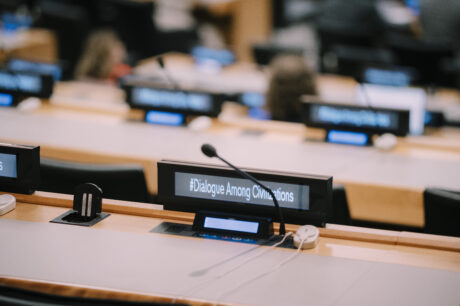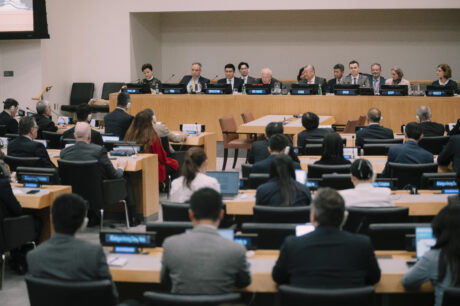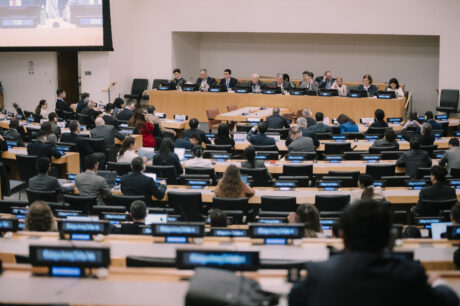Remarks by Under-Secretary-General, Mr. Miguel Ángel Moratinos,
High Representative for the United Nations Alliance of Civilizations,
at the first International Day for Dialogue Among Civilizations
New York – 9 June 2025
Your Excellency,
Mr. Fu Cong, Permanent Representative of the People’s Republic of China,
Excellencies,
Distinguished Guests,
At the outset, I am very pleased to address the first observance of the International Day for Dialogue Among Civilizations co-organized by the Permanent Mission of China and the United Nations Alliance of Civilizations.
This moment is the result of collective political will and a shared conviction—expressed through the adoption of General Assembly resolution A/RES/78/286—that dialogue among civilizations is not only relevant, but essential to building a more peaceful, just, and united world.
I thank the People’s Republic of China for its leadership and their steadfast commitment to advancing dialogue among civilizations. I also thank the co-sponsors of our event today—Egypt, Peru, Spain, and Uzbekistan—for their commitment to advancing dialogue and understanding among civilizations.
Dialogue is a timeless prerequisite. But even more so today.
We are living in an era marked by deep uncertainty—rising geopolitical tensions, violent conflict, social fragmentation, climate anxiety, and the dangerous spread of hate speech, racism and extreme polarization. These adverse impact of these crises cut deep into our societies, fracturing them and sowing division, mistrust, and fear.
In such a context, dialogue is not an abstract gesture of good will —it is a strategic imperative. It is our most effective means to defuse tensions, build trust, and reaffirm our common humanity.
For the United Nations Alliance of Civilizations, dialogue in its broader sense has been and continues to be our raison d’etre. Dialogue is anchored in our motto : Many Cultures, One Humanity.
When UNAOC was created in 2005, it was in response to a dangerous narrative: that civilizations were on a path of inevitable confrontation. Today, two decades later, we offer a different vision—one grounded in mutual respect, shared values, and the deep belief that our diversity is a source of strength.
Over the past two decades, UNAOC has worked across continents to promote intercultural and interreligious dialogue, to empower young people, to support inclusive education, and to engage the media in building narratives of peace. We have learned that when people come together—across cultures, across beliefs—they do not lose their identities. They enrich them. They discover new possibilities for solidarity and cooperation.
Today, as we mark the first International Day, we are reminded that dialogue is not an abstract principle. It is a lived practice. It begins in the home and extends to the international stage. It thrives in our classrooms, our cities, our places of worship, and our diplomatic halls.
But dialogue must be more than a symbolic gesture. It must be sustained. It must be translated into policies and actions that address discrimination, bigotry, exclusion, and marginalization. It must create spaces where all people—regardless of their background and identity —can contribute to shaping our shared future.
Let me be clear: We will not achieve peace through silence. We will achieve it by engaging with sincerity. By choosing understanding over suspicion.
Let us ensure that dialogue remains at the heart of multilateralism. Let us continue to build a world in which civilizations do not clash, they ally. Where cultures do not compete, they co-create.
Where diversity is not feared—but celebrated.
Thank you.



